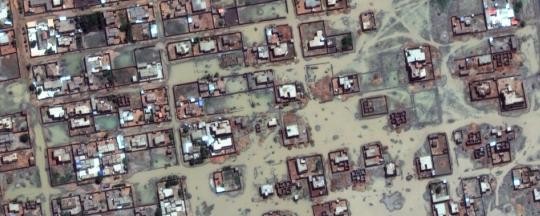According to a report of the UN Office for the Coordination of Humanitarian Affairs (OCHA) the total number of flood-affected people in Sudan stands at around 340,000, with the most affected states being Khartoum, El Gezira and the Blue Nile. Humanitarian organisations are reportedly continuing to assist people affected by the floods.
The Emergency Shelter and Non-Food Items (ES/NFI) sector has estimated that some about 29,000 families have received emergency shelter and non-food relief supplies from available stocks. An additional 65,000 people will receive assistance in the days and weeks to come.
The report further confirmed that the Health and the Water, Sanitation and Hygiene (WASH) sector has chlorinated some 2,900 water sources and carried out solid waste management campaigns. Emergency clinics provide health care. Before the onset of the floods, the health sector already prepositioned sufficient stocks of primary health, rapid response, basic health, and reproductive health kits throughout the country.
“Madad”, a youth group in Blue Nile state assisting flood-affected people warned against worsening health conditions. Mohamed Abdullah, the chairman of the Solidarity Committee in the Blue Nile state confirmed an increase in malaria cases as well as an outbreak of diarrhoea. Moreover a lot of people complain of various forms of inflammation. Humanitarian organisations operating in the field of health and hygiene are absent, while support is needed in particular with disinfecting and renovation of the toilets that have been damaged by the floods.
Photo: Flooding in Khartoum, 11 August 2013 (DigitalGlobe satellite imagery/Enough Project)




